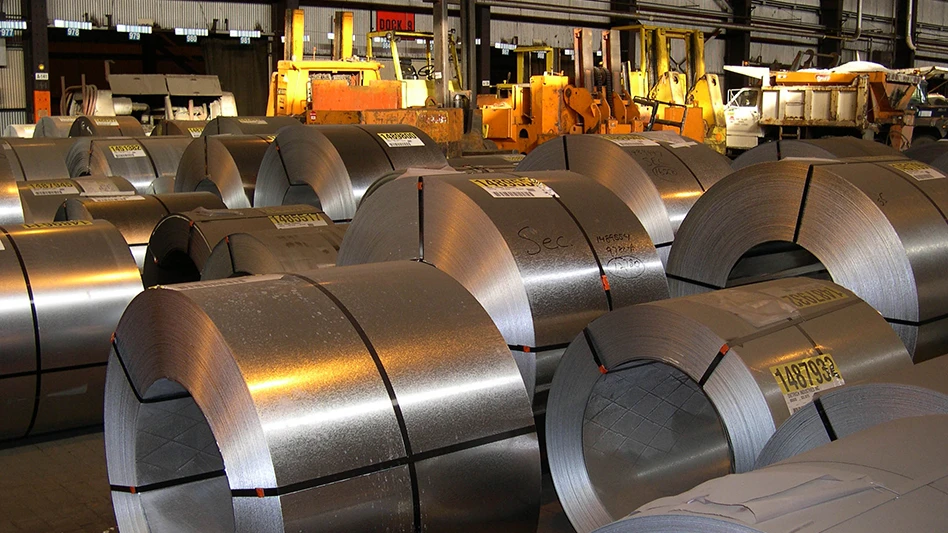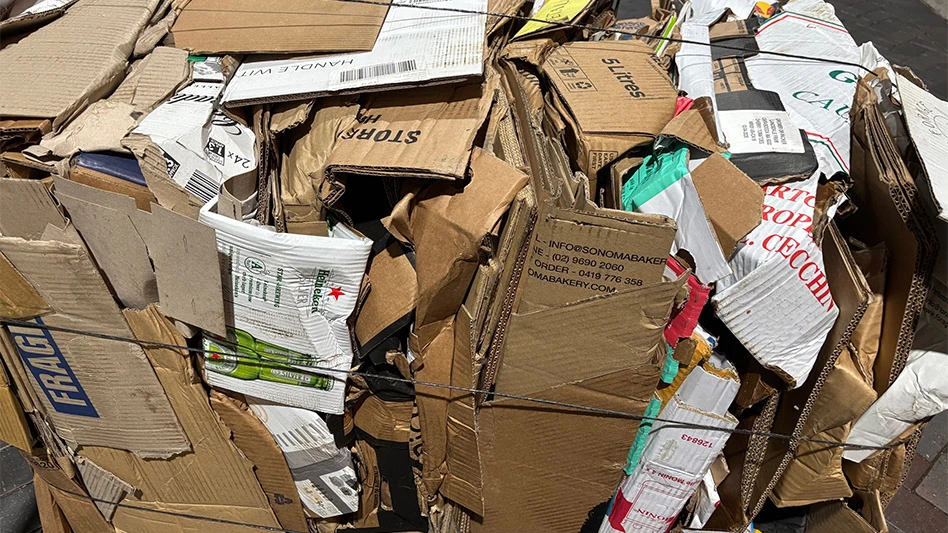
.gif) |
| Photo courtesy of Port of Long Beach. |
Cargo handling activities at the 29 Pacific Coast ports in the United States resumed on Sunday, February 22, following an agreement reached with the assistance of the U.S. Secretary of Labor Tom Perez and Federal Mediation and Conciliation Service Deputy Director Scot Beckenbaugh. The agreement is tentative and must still be voted upon by union members. the contract is reportedly expected to run for five years. Neither the Pacific Maritime Association (PMA) or the International Longshore and Warehouse Union (ILWU) are releasing details on the agreement at the present time.
Washington Governor Jay Inslee was one of many government officials who expressed relief that a deal was close to being signed.
"This is great news for businesses and port workers all along the West Coast. I want to thank the ILWU and the PMA for finding an agreement in principle tonight to settle the dispute that was damaging Washington's economy. I also want to thank President Obama and Labor Secretary Perez for stepping in and helping get the parties to reach an agreement. I expect we will soon see Washington's ports once again playing their essential role in our economy."
Numerous trade groups who have been negatively affected by the contentious labor problems welcomed the tentative agreement.
Robin Wiener, president of the Institute of Scrap Recycling Industries, released a statement welcoming the progress between the two parties.
“Recyclers are pleased that an agreement appears to be in place ending a dispute that caused significant harm to our industry and others in the manufacturing sector. We thank Congress and the Administration for their involvement to get this tentative agreement. Despite the agreement, it will still take several months for operations to return to normal and for recyclers to recover from the damage that was done.
“Already facing a drop in prices, recyclers witnessed a decline in exports, which left many forced to cut their workforce and set aside investments needed to grow their business. There may still be long-term consequences we face such as lost overseas markets. Both sides are encouraged to ratify the agreement quickly and work to restore full operations and begin to clear the backlogs at the ports as soon as possible.
“In 2014, scrap exports from West Coast ports declined nearly 12 percent year-on-year to less than $8.4 billion. The slowdown in scrap exports from the West Coast became more pronounced as the year progressed and the port situation deteriorated. In December 2014, the value of scrap exports from the West Coast plunged 17 percent year-on-year, reflecting a year-over-year volume decrease of nearly 160,000 metric tons of scrap and a decline in scrap export sales approaching $130 million for the month of December alone.”
Peter Friedmann, executive director of the Agriculture Transportation Coalition, also expressed optimism that a deal was close at hand.
"We are extremely pleased with the news that the West Coast port labor dispute is on the verge of ending. We know that even upon ratification, clearing up the congestion will take months. And ultimately, if U.S. agriculture is to recover, we will need to see West Coast ports become more efficient, more productive than they were before the contract expired and the disruption initiated.
US agriculture has taken a beating these past 10 months as West Coast port disruption has denied many agriculture exporters access to foreign markets. The delays imposed by congested, understaffed and under automated ports have created barriers to our exports.
“There is nothing that we produce in agriculture here in the U.S. that cannot be sourced elsewhere in the world. If we don't supply dependably and affordably, we lose that business. Twelve years ago the West Coast ports were shut down and foreign buyers shifted purchases to some of our foreign competitors. In some cases, twelve years later, they still haven't come back to the U.S. ag producers.
The Agriculture Transportation will continue to push the PMA and the ILWU to improve West Coast port productivity and efficiency, not just restore ports to pre-contract dispute levels, but to levels that will make our ports, and products our AgTC members ship through them, competitive with the best ports in the world. We are a long ways from that.”
In a statement released by the National Association of Manufacturers (NAM) Jay Timmons, NAM’s president and CEO, says, “For months, the NAM has pressed the Obama Administration, Congress and the parties for a resolution to the West Coast ports slowdown. Finally, just last week, the Administration answered our call to step up its engagement. And, today, the parties have responded to our warnings, our concerns and our needs, beginning the process of returning the ports to normal business operations and removing major barriers to global commerce.”
“We are pleased President Obama dispatched Secretary of Labor Thomas Perez to help impress upon the parties the need to resolve the deadlock. We appreciate the engagement of Secretary of Commerce Penny Pritzker and mayors up and down the West Coast to communicate the importance of open and functioning ports to the economy,” NAM’s statement continued. “In addition, we thank all manufacturers from coast to coast for lending their voices to this urgent crisis and our partners at the National Retail Federation for joining with us to raise public awareness and galvanize the public’s support for a swift resolution.”
While this agreement is welcome news, there will be significant backlogs to clear, and everyone has a part to help restore confidence that the West Coast and the United States are open for business.”
Latest from Recycling Today
- Recycling Europe backs regional preference policy
- SMA announces board election results
- Volvo CE adds to Rudd Equipment’s territory
- Cups made with PP earn 'Widely Recyclable' designation
- Recology drivers increase San Francisco collection for Super Bowl week
- Terex, Rev Group complete merger
- Eco-Products to launch environmentally responsible packaging products in UK
- BlueScope’s new CEO affirms bid rejection





